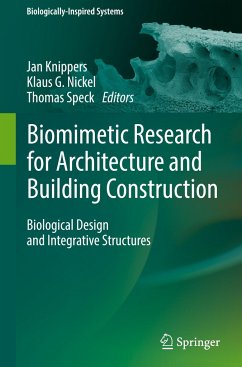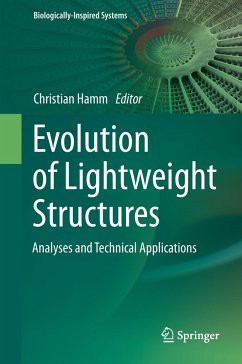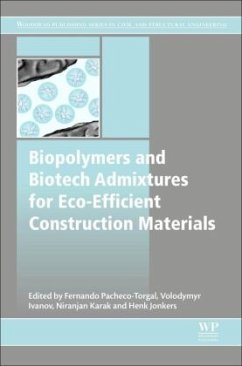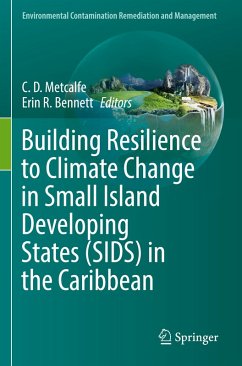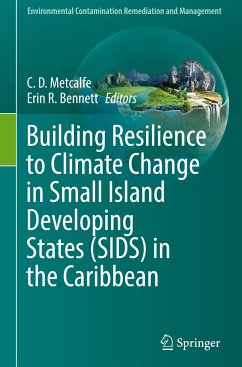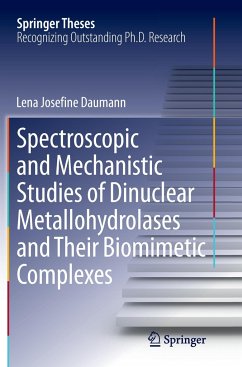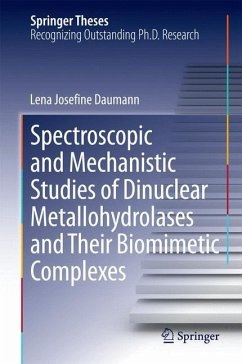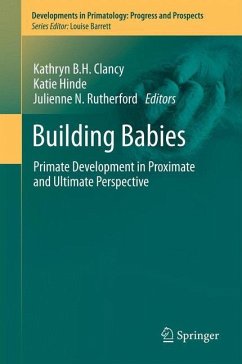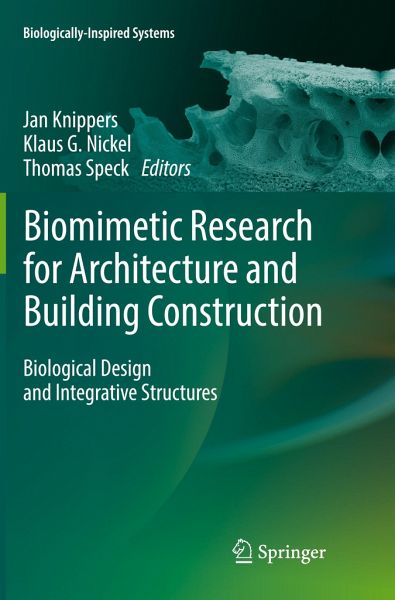
Biomimetic Research for Architecture and Building Construction
Biological Design and Integrative Structures
Herausgegeben: Knippers, Jan; Nickel, Klaus G.; Speck, Thomas
Versandkostenfrei!
Versandfertig in 6-10 Tagen
174,99 €
inkl. MwSt.

PAYBACK Punkte
87 °P sammeln!
This book comprises a first survey of the Collaborative Research Center SFB-TRR 141 'Biological Design and Integrative Structures - Analysis, Simulation and Implementation in Architecture', funded by the Deutsche Forschungsgemeinschaft since October 2014. The SFB-TRR 141 provides a collaborative framework for architects and engineers from the University of Stuttgart, biologists and physicists from the University of Freiburg and geoscientists and evolutionary biologists from the University of Tübingen. The programm is conceptualized as a dialogue between the disciplines and is based on the bel...
This book comprises a first survey of the Collaborative Research Center SFB-TRR 141 'Biological Design and Integrative Structures - Analysis, Simulation and Implementation in Architecture', funded by the Deutsche Forschungsgemeinschaft since October 2014. The SFB-TRR 141 provides a collaborative framework for architects and engineers from the University of Stuttgart, biologists and physicists from the University of Freiburg and geoscientists and evolutionary biologists from the University of Tübingen. The programm is conceptualized as a dialogue between the disciplines and is based on the belief that that biomimetic research has the potential to lead everyone involved to new findings far beyond his individual reach. During the last few decades, computational methods have been introduced into all fields of science and technology. In architecture, they enable the geometric differentiation of building components and allow the fabrication of porous or fibre-based materials with locallyadjusted physical and chemical properties. Recent developments in simulation technologies focus on multi-scale models and the interplay of mechanical phenomena at various hierarchical levels. In the natural sciences, a multitude of quantitative methods covering diverse hierarchical levels have been introduced. These advances in computational methods have opened a new era in biomimetics: local differentiation at various scales, the main feature of natural constructions, can for the first time not only be analysed, but to a certain extent also be transferred to building construction. Computational methodologies enable the direct exchange of information between fields of science that, until now, have been widely separated. As a result they lead to a new approach to biomimetic research, which, hopefully, contributes to a more sustainable development in architecture and building construction.



